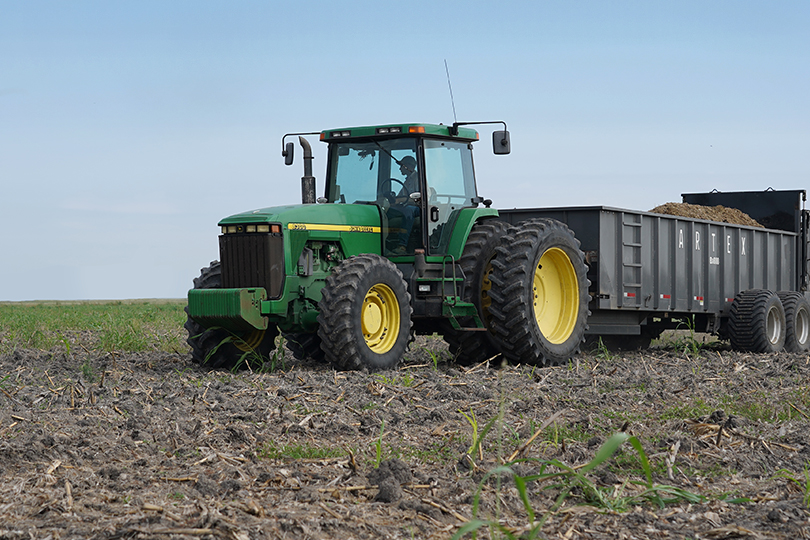By Jennifer Whitlock
Field Editor
Researchers found that soil in semi-arid regions like the Texas Southern High Plains can be just as healthy as those in climates with higher annual rainfall amounts.
All it takes is a little cow manure, according to a study recently published in the Soil Science Society of America Journal.
In the study led by Texas Tech University Plant & Soil Science Assistant Professor Dr. Lindsey Slaughter, excess cow manure from area feedlots was spread on two test plots of perennial grazing pastures to determine if the application had any measurable effect on soil health.
“We know that planting perennial grasslands for cattle production can help protect and restore soil in semi-arid lands that are likely to erode and degrade from intense farming,” Slaughter said. “But producers need additional ways to increase soil carbon and nutrient stores.”
Soil is a mixture of organic matter, minerals, gases, liquids and organisms that supports life. It performs a variety of functions to support plant and animal life through its nutrient cycling and water storage and purification properties.
“Improving the soil’s ability to perform these roles and support plant and animal life is our target for soil health,” she said. “Adding the manure can provide a boost of material that can be incorporated into soil organic matter. This helps provide a stronger foundation for more microbial activity and nutrient cycling.”
To determine whether composted manure can help improve the pastures, Slaughter and her team made a one-time application on two pastures—a grass pasture that was occasionally fertilized and another pasture growing a mix of grass and legumes that was never fertilized.
The researchers found manure does help increase soil carbon and microbe diversity, but it takes time to see improvement. Nearly a year-and-a-half passed before noticeable changes occurred.
“This tells us that it can take a long time for even a little added compost to become incorporated into the soil organic matter of semi-arid grasslands, but it definitely helps. We think this is mostly due to the dry climate at our study site,” Slaughter said. “We commonly get little rainfall per year. The microbial community was not able to work quickly or efficiently to decompose the manure without water.”
The fertilized pasture responded better. Slaughter noted this is likely due to nitrogen from the fertilizer aiding the microbes in manure decomposition.
“Microbes help directly with releasing nutrients from organic material in a form that plants can use, as well as decomposing those residues to build soil organic matter,” she said. “A lot of work has been done on how this can help improve cropping systems. However, we wanted to also test this on forage pastures.”
She plans to continue the research while adding in other variables like multiple applications, irrigation or additional fertilizer to see if these factors help manure break down faster.
“We need more research along these lines to help us design strategies that quickly and effectively increase soil health and productivity in these grasslands,” Slaughter said. “This helps farmers save money on nutrients and amendments while building soil organic matter and nutrient cycling capacity. This also saves them water and protects against soil degradation.”

